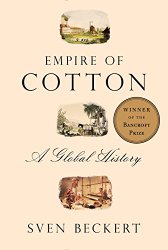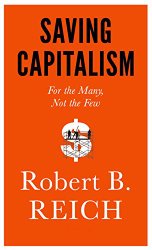From the celebrated New Yorker cartoonist and acclaimed author of Cancer Vixen, a brilliant, funny, and wildly imaginative first novel: the story of an influential gossip columnist brought face-to-face with her higher self—and a challenge to change her life for the better. Glamorous, superconnected Ann Tenna is the founder of Eyemauler, a New York City-based Web site that’s …
Knopf
Expanded and updated exclusively for graduates just entering the workforce, this extraordinary edition of Lean In includes a letter to graduates from Sheryl Sandberg and six additional chapters from experts offering advice on finding and getting the most out of a first job; résumé writing; best interviewing practices; negotiating your salary; listening to your inner voice; owning who …
WINNER OF THE BANCROFT PRIZEPULITZER PRIZE FINALISTThe epic story of the rise and fall of the empire of cotton, its centrality to the world economy, and its making and remaking of global capitalism. Cotton is so ubiquitous as to be almost invisible, yet understanding its history is key to understanding the origins of modern capitalism. Sven Beckert’s rich, fascinating …
From the author of Aftershock and The Work of Nations, his most important book to date—a myth-shattering breakdown of how the economic system that helped make America so strong is now failing us, and what it will take to fix it. Perhaps no one is better acquainted with the intersection of economics and politics than Robert B. Reich, …
The acclaimed author of Founding Gardeners reveals the forgotten life of Alexander von Humboldt, the visionary German naturalist whose ideas changed the way we see the natural world—and in the process created modern environmentalism. Alexander von Humboldt (1769–1859) was an intrepid explorer and the most famous scientist of his age. In North America, his name still graces four …
From the National Book Award–winning author of Just Kids: an unforgettable odyssey of a legendary artist, told through the prism of the cafés and haunts she has worked in around the world. It is a book Patti Smith has described as “a roadmap to my life.” M Train begins in the tiny Greenwich Village café where Smith goes …
Here at last: the fully expanded, updated, and freshly designed second edition of the most comprehensive and widely acclaimed guide to domestic architecture—in print since its publication in 1984, and acknowledged everywhere as the unmatched, essential reference to American houses. Focusing on dwellings in urban and suburban neighborhoods and rural locations all across the continental United States—houses built …
I am down to a pencil, a pen, and a bottle of ink. I hope one day to eliminate the pencil. Al Hirschfeld redefined caricature and exemplified Broadway and Hollywood, enchanting generations with his mastery of line. His art appeared in every major publication during nine decades of the twentieth and twenty-first centuries, as well as on …
A spectacular book of nearly 400 photographs of the weddings and wedding dresses of royalty, social figures, models, artists, actors, musicians and designers which have appeared in Vogue through the magazine’s 120 year history. Here are ethereal brides photographed by Cecil Beaton, George Hoyningen-Huene, Baron de Meyer, Patrick Lichfield, Edward Steichen, Robert Doisneau, Tim Walker, François Halard, Patrick Demarchelier, Jonathan …
The Quartet: Orchestrating the Second American Revolution, 1783-1789
From Pulitzer Prize–winning American historian Joseph J. Ellis, the unexpected story of why the thirteen colonies, having just fought off the imposition of a distant centralized governing power, would decide to subordinate themselves anew. We all know the famous opening phrase of Lincoln’s Gettysburg Address: “Four score and seven years ago our fathers brought forth on this Continent …









